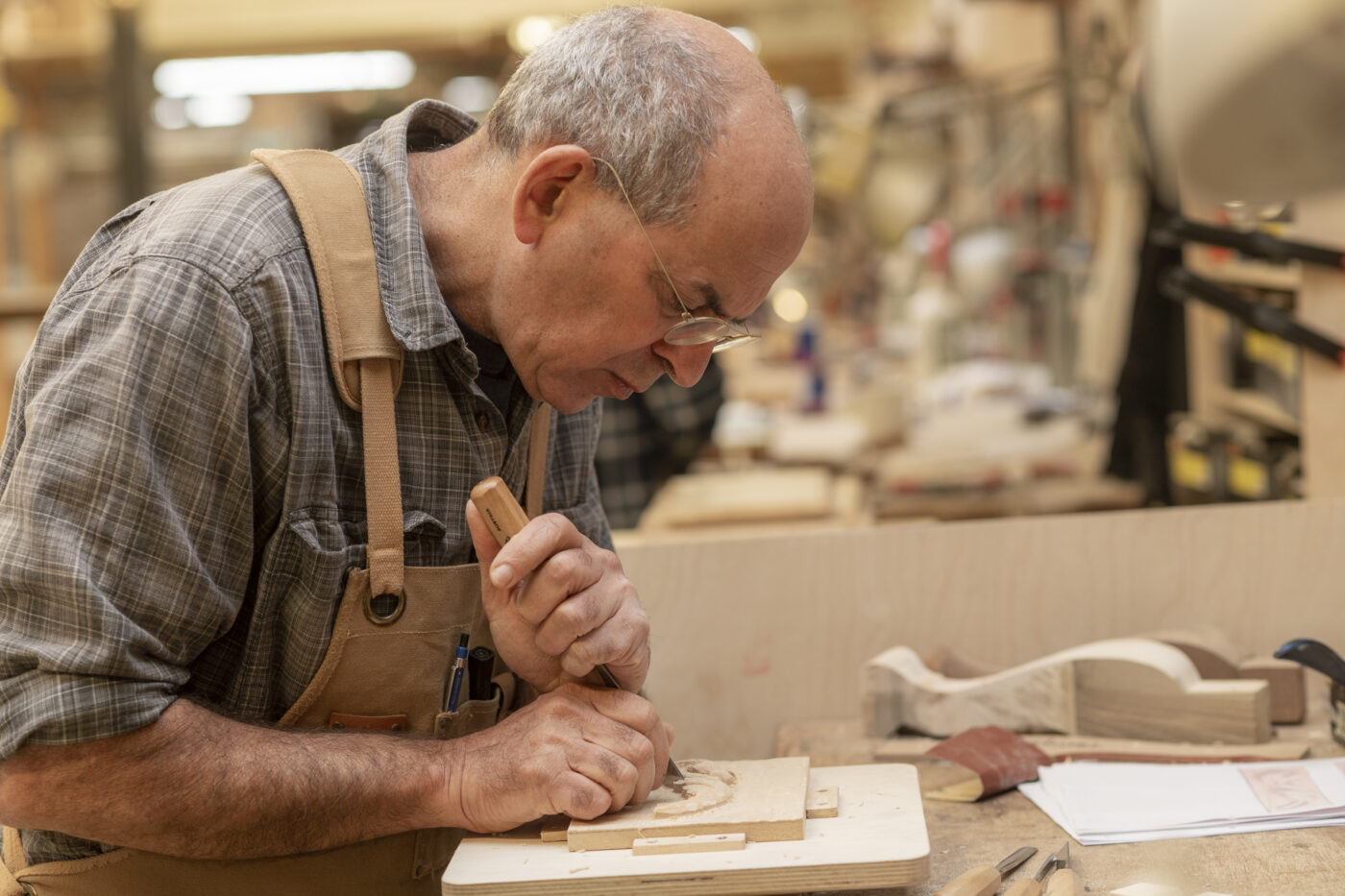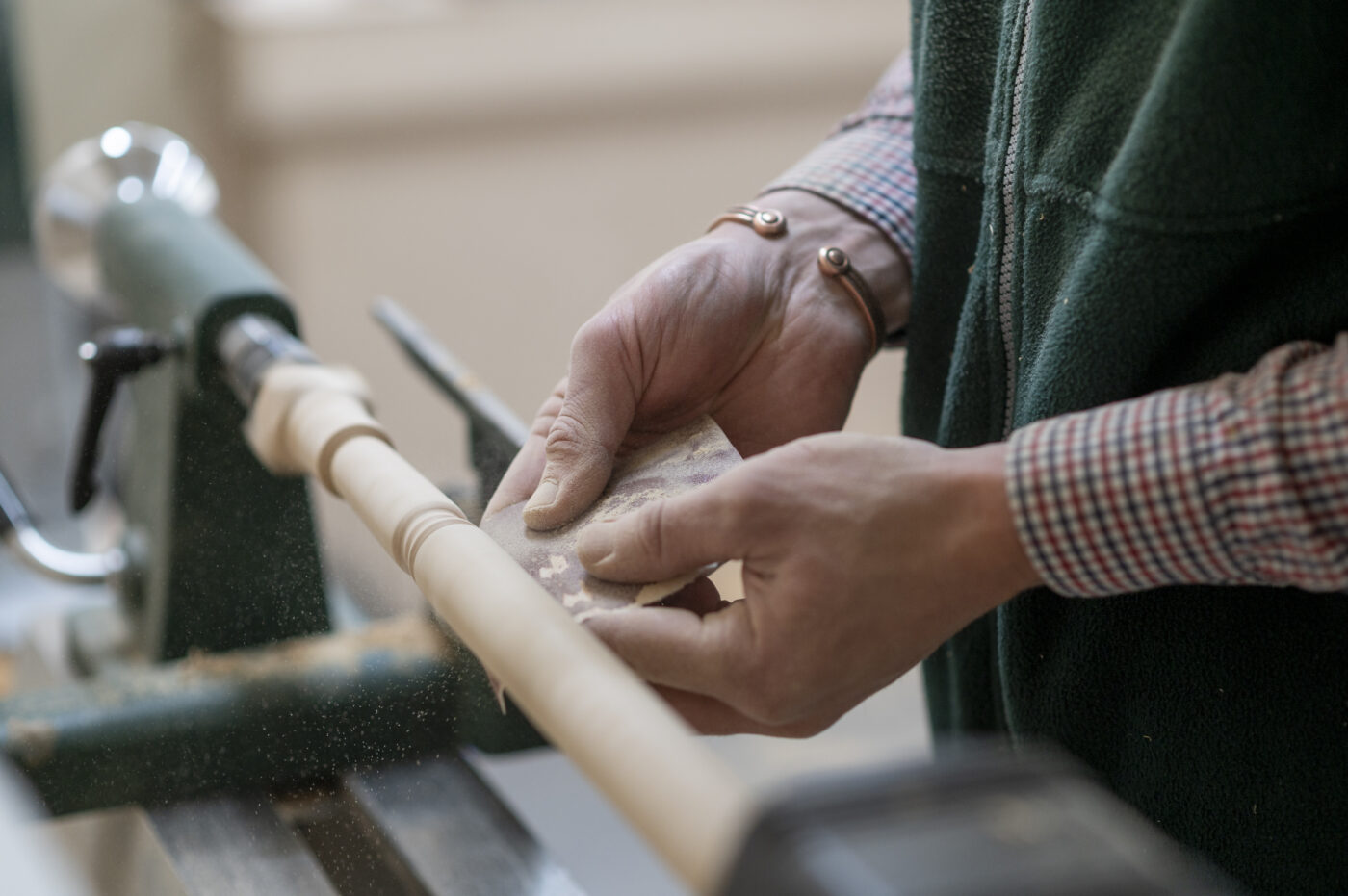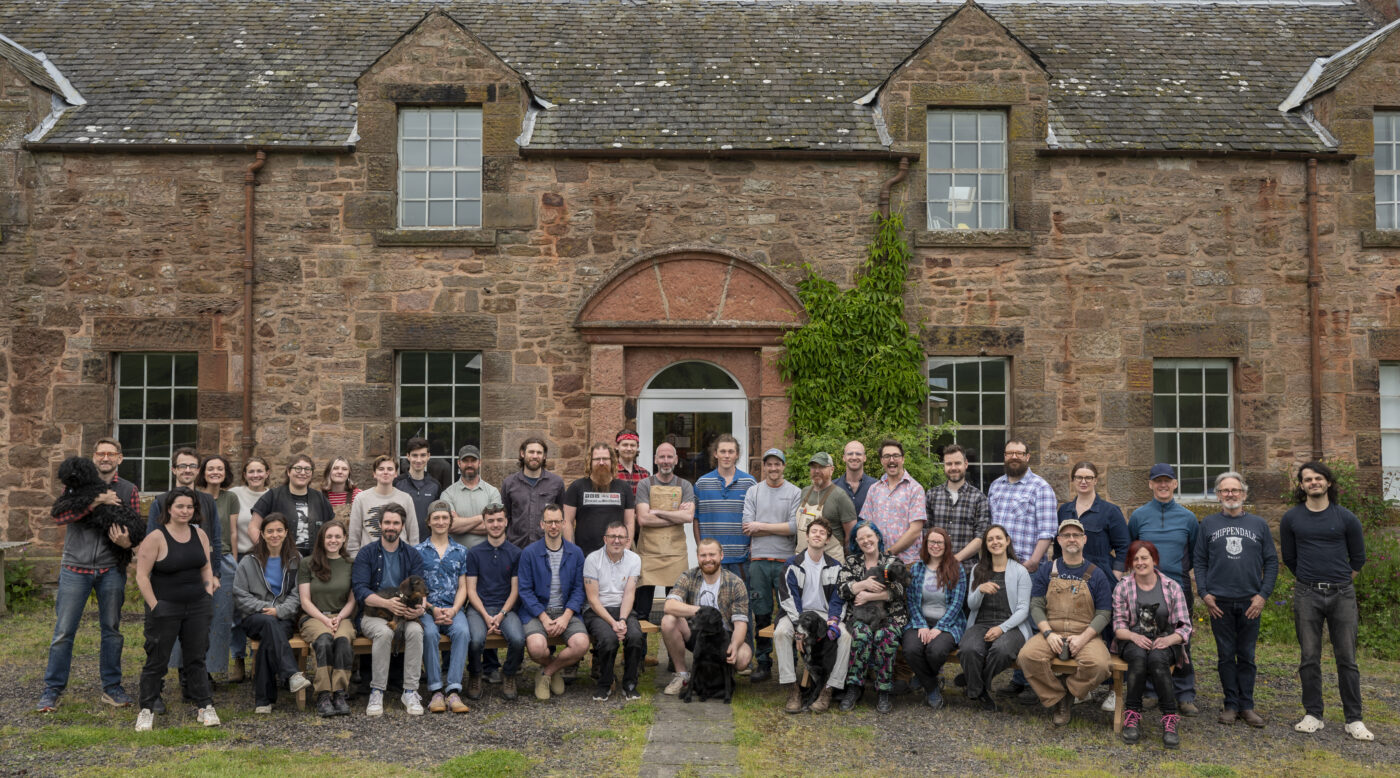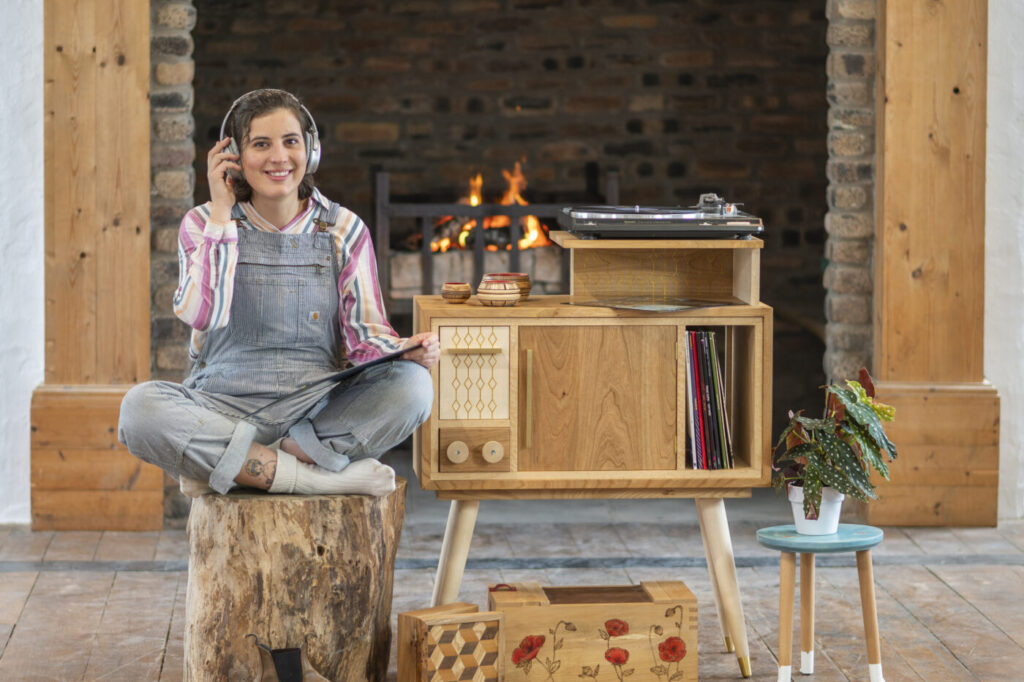The demand for bespoke, handcrafted furniture is on the rise and with it, we have noticed a growing interest in those pursuing a career as a fine furniture maker – our Professional Course consistently attracts attention from aspiring artisans worldwide!
Whether through formal education, apprenticeships, or specialised courses, each route offers its own set of opportunities to develop your skills and turn your passion into a fulfilling career.
In this blog, Tom Fraser, principal of the Chippendale School, discusses the key considerations for each stage of the journey to becoming a fine furniture maker.

Steps to becoming a fine furniture maker
1. Invest in education & training
Everyone has to start somewhere, so let’s begin with the basics. Building a solid foundation in carpentry and joinery is essential for any aspiring furniture maker. Introductory courses, often offered at major furniture-making schools or technical colleges, provide the fundamental skills that form the backbone of your craft. Start by searching online for a course near you to kick off your journey.
When you’re ready to take your skills to the next level, consider enrolling on specialised furniture making programs. At Chippendale School, we offer a range of courses to support you throughout your new woodworking career. From 1-week introductory courses to our comprehensive 30-week Professional Course, we provide everything you need – be it learning the essentials or setting up your own specialised fine furniture-making business.
2. Pursue apprenticeships
Apprenticeships offer invaluable, hands-on experience that is hard to match in a traditional classroom setting. Working closely with experienced furniture makers within established workshops gives you the chance to learn tried-and-true methods while gaining real-world practice. In fact, at Chippendale School, many of our top tutors began their careers as apprentices. Tutors Alan McGovern, Clare Charleston and Graham Davies all joined the school as apprentices and are still eagerly driving innovation and progress in our 10-week and 30-week courses.
Don’t underestimate the power of reaching out directly to workshop owners and managers to secure an apprenticeship. Show your enthusiasm for the craft as well as your eagerness to learn – this proactive approach can open doors and set you on the path to success. Be prepared to graft, as woodworking apprenticeships will present challenges – but all with great rewards.

3. Enhance skills with specialised courses
Once you’ve built a solid foundation, you might want to refine your abilities further by attending short courses or workshops focused on specific techniques such as woodturning, wood bending, veneering, or cabinet making. These specialised courses, offered at dedicated institutions or furniture schools, allow you to focus on a niche skill, master new techniques, and allow your unique style to emerge.
4. Develop business acumen
In today’s competitive marketplace, understanding the business side of furniture making is just as important as mastering the craft itself. Courses or classes in pricing, marketing, and customer care are useful to equip you with the knowledge needed to run a successful workshop or business. At the Chippendale International School of Furniture, we incorporate business skills into our 30-week professional course, preparing students not only to create exquisite furniture but also to commercially thrive in the industry.
For graduates, we offer a unique opportunity at Myreside Studios. Here, they can establish their own furniture-making business within a supportive, creative community of woodworkers from around the world, right here in our dedicated workshops in the glorious East Lothian countryside.

Top furniture making and design schools in the UK
- Chippendale School: Our intensive programme covers all aspects of fine furniture making, including practical skills, design, restoration, and essential business knowledge, with significant bench time for hands-on learning.
- Waters & Acland: Based near the Lake District, Waters & Acland furniture workshop and furniture school has produced award-winning handcrafted furniture and offers a range of both long and short courses in furniture design and making.
- Williams & Cleal: Situated with stunning views of the Quantock Hills, Williams & Cleal provides a wide variety of courses, including skill-focused woodworking classes.
- Rowden Atelier: This internationally recognised woodworking school in southern England offers professional courses in cabinet making, furniture design, and furniture making.
- Robinson House Studio: Located on the East Sussex coast, Robinson House Studio offers a range of woodworking courses, specialising in traditional techniques
These institutions provide a range of courses tailored to different aspects of furniture making, from design to hands-on craftsmanship. Whether you’re just getting started as a fine furniture maker or looking to advance your skills and find your personal flair, these programmes can lay the foundation for success in this growing industry.
To learn more about our upcoming Professional Course or explore our full range of courses, explore our website. Please do get in touch with any questions – we’re here to help you carve out a successful career in fine furniture making.
